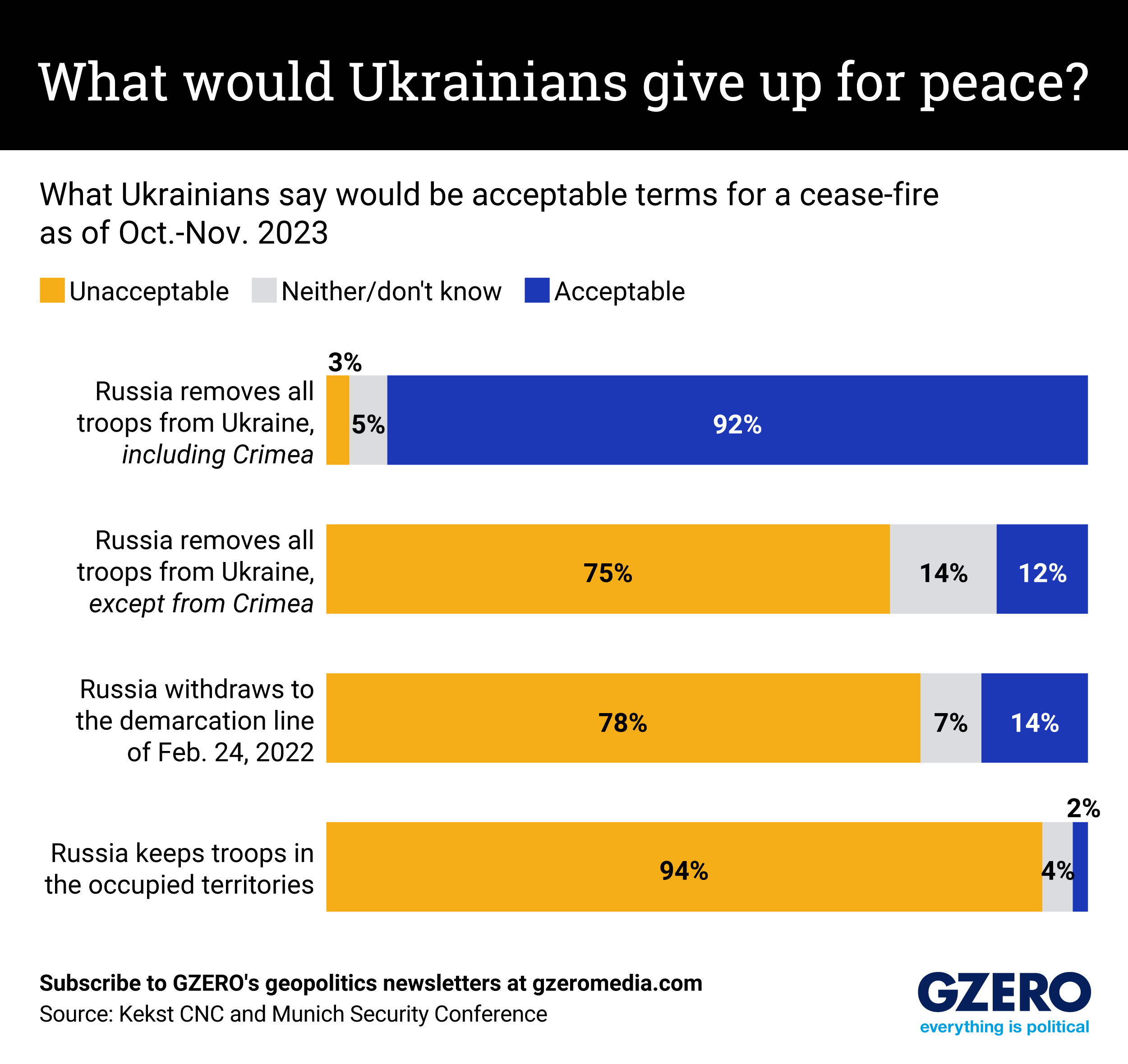February 12, 2024
Ukraine is days away from marking the second anniversary of Russia’s 2022 invasion. The war is largely stalemated, with few changes to the battlefield map in recent months. Ukrainian troops are engaged in brutal trench warfare reminiscent of World War I but with the added nightmare of deadlier modern weaponry and technology. After enjoying strong, steady support from its Western allies in the first year and a half of the war, Kyiv now faces a constant struggle to keep aid flowing in as it runs short on supplies and faces manpower issues. Meanwhile, Russian President Vladimir Putin shows no signs of backing down despite the myriad political, economic, and societal consequences the war has had for Russia.
But none of that is undermining Ukraine’s resolve. New polling from the Munich Security Conference shows that Ukrainians are strongly opposed to any cease-fire framework that would require Kyiv to cede territory to Russia — particularly Crimea, which Moscow annexed in 2014. This suggests that Ukrainians are largely aligned with their government, which has pushed for a peace plan that would see Russia withdraw troops from occupied territories and recognize Ukraine’s 1991 post-Soviet borders. Moscow has scoffed at this proposal.
More For You
- YouTube
At the 2026 World Economic Forum, GZERO's Tony Maciulis spoke with Matthew Blake, Managing Director at the World Economic Forum, about a defining transition for Davos and the state of the global economy.
Most Popular
Former South Korean President Yoon Suk Yeol arrives at a court to attend a hearing to review his arrest warrant requested by special prosecutors in Seoul, South Korea, July 9, 2025.
REUTERS/Kim Hong-Ji/Pool/File Photo
5: The number of years South Korea’s ex-President Yoon Suk Yeol was sentenced in prison today, on charges related to his failed attempt to impose martial law last year.
Russian President Vladimir Putin speaks during a news conference after a meeting of the State Council on youth policy in Moscow, Russia, on December 22, 2022.
Sputnik/Sergey Guneev/Pool via REUTERS
The Russian president said little when the US seized Venezuelan strongman Nicolás Maduro, an ally of Moscow. But there might be a reason for his silence.
© 2025 GZERO Media. All Rights Reserved | A Eurasia Group media company.
